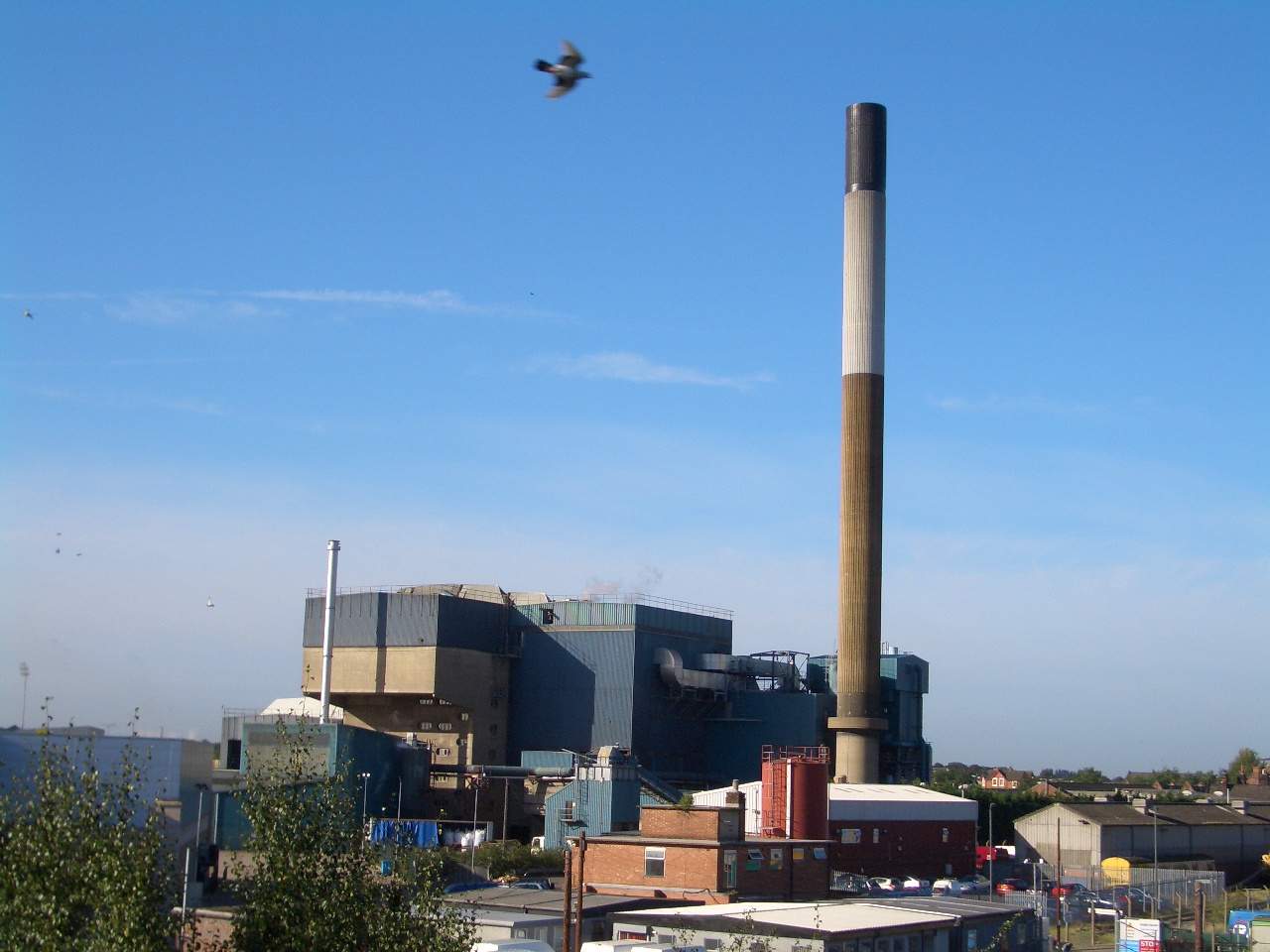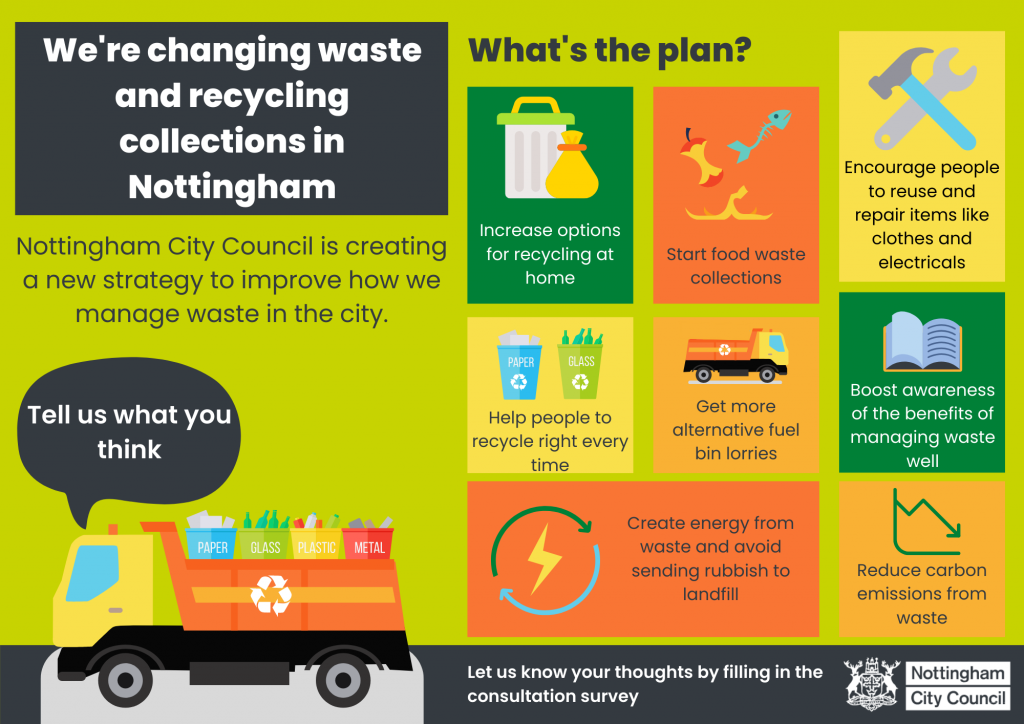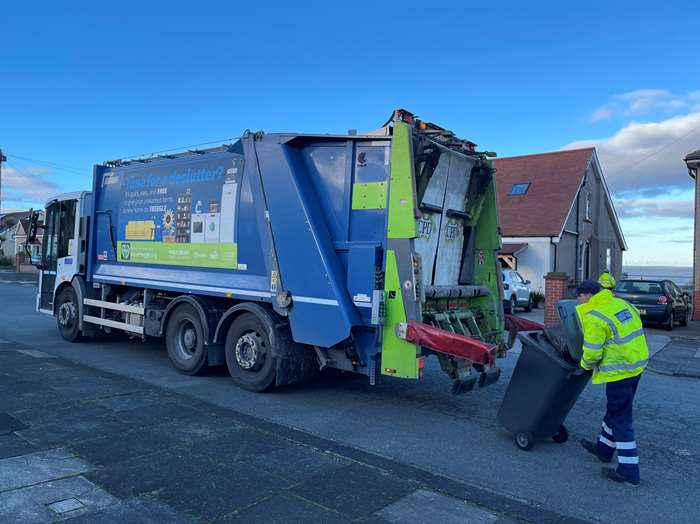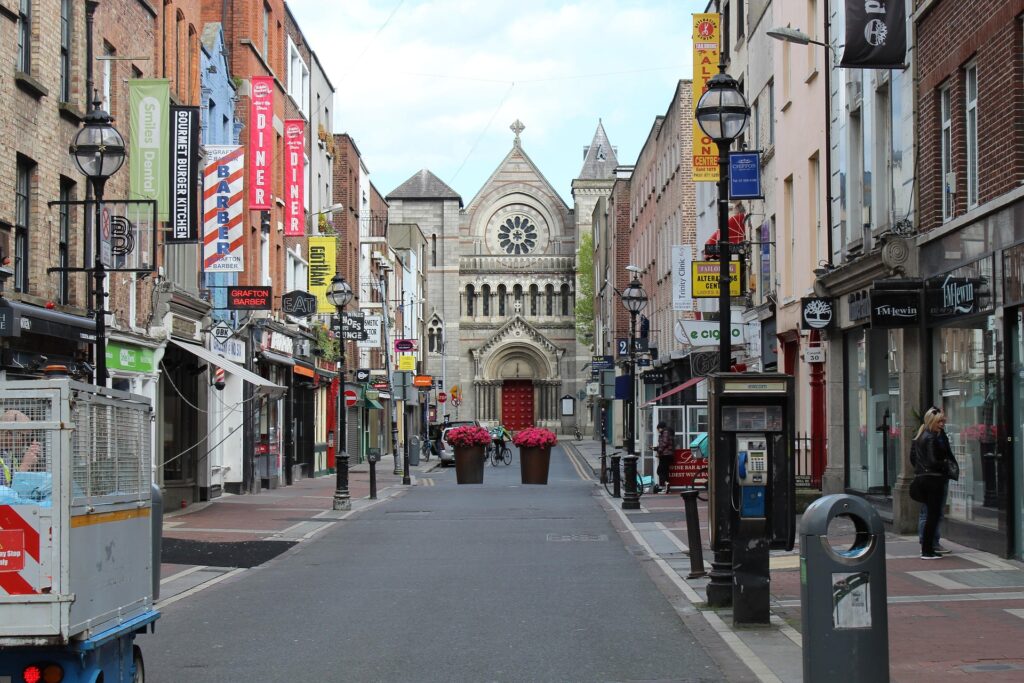Nottingham’s overview and scrutiny committee met last week (9 November) to discuss the city’s resources and waste strategy, which it is refreshing in light of expected requirements under the government’s much-anticipated plans for consistency in household and business recycling in England.
Currently, Nottingham’s in-house service sees commingled recycling collected fortnightly in brown bins with a grey lid.
Minutes from the meeting show Antony Greener, Nottingham’s head of service for district heating and waste strategy, and Alvin Henry, head of commercial and domestic waste, told councillors this approach “makes it easier for households to engage” with recycling, but “there can be a lot of cross-contamination and poor quality of output”.
Last month, Nottingham launched a public consultation on whether it should switch to a twin-stream or a multi-stream approach involving several bins, which the meeting discussed (see letsrecycle.com story).
The minutes read: “Some committee members commented that it may be hard to implement a multi-stream approach to kerbside recycling in some areas as not all households will have the space to accommodate multiple recycling containers. This could create resistance amongst some households.”
Mr Greener and Mr Henry “provided assurance” there would be a five- to 10-year transition period “in recognition of the potential for resistance to change” and the need to educate the public on how to manage their waste, the minutes say.
Approaches
Nottingham’s twin-stream approach would see one container for paper and card and another for all other recyclables, while the multi-stream approach would see different containers for paper and card, glass, plastics and cans and tins.

According to the minutes, “modelling has shown that while there is little difference between the two in terms of recycling performance, the multi-stream approach would be the most cost-effective to implement and have the largest carbon benefit due to lower sorting requirements.”
With Defra’s response to its consistency consultation now long overdue, the meeting heard that the specifics of funding – and particularly the support available from government – were not yet known, though “the council understands the cost implication of different options”.
At the meeting, councillors suggested technology “could be used to do a greater proportion of sorting materials”, the minutes show, though they said any “contamination reduces the quality of output and its value”. “The value of the output cannot be below the cost of producing it otherwise there is no market for it,” the minutes read.
The council is to carry out pilots of food waste, multi-stream and twin-stream collections in three areas of Nottingham from January.
Nottingham
Representing an estimated population of more than 330,000, Nottingham city council had a household waste recycling rate of 23.9% in the 2020/21 financial year.

The committee noted the government’s resources and waste strategy requires all councils in England to send less than 10% of their waste to landfill by 2035.
Nottingham currently sends around 8% of its residual waste to landfill, with the rest going to FCC Environment’s Eastcroft energy from waste plant, which also supplies heat to more than 5,000 households and a number of public and commercial premises across the city.
The council says it has already received around 1,500 responses to its public consultation, which runs until 14 December.
The feedback will be collated and used to inform the final strategy, the council says, which will be taken to Nottingham’s executive board for approval in March 2023.










Subscribe for free